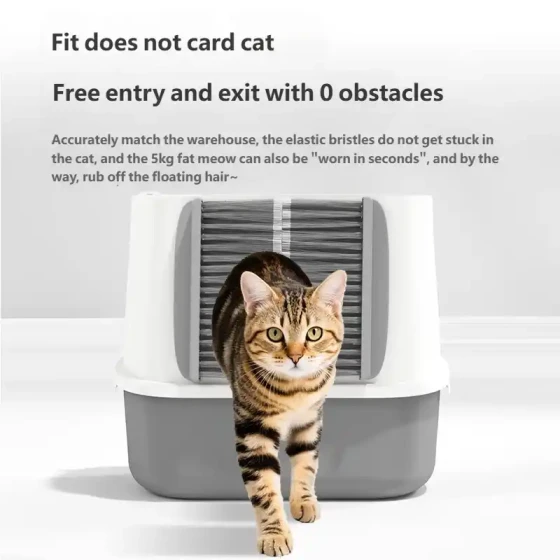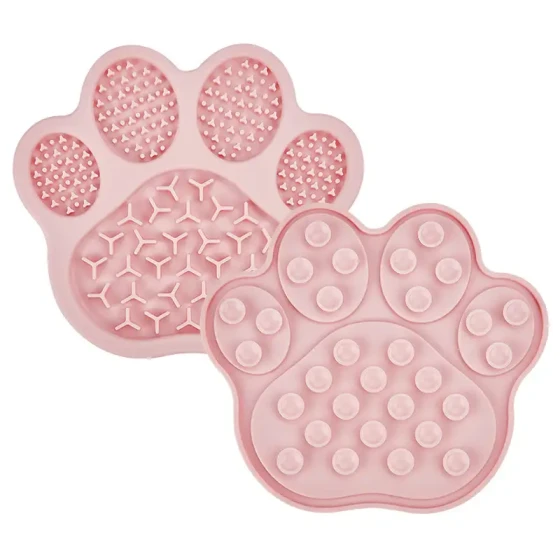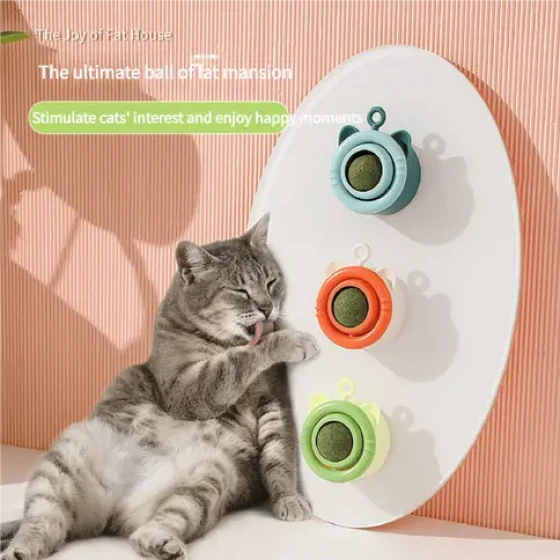Differences Between Catteries and Pet Shops_A Must-Read Buying Guide for Cat Newbies
For cat newbies, choosing whether to buy a cat from a cattery or a pet shop is a common dilemma. Simply put, catteries focus more on professional breeding of specific breeds, usually providing cats with pure bloodlines and guaranteed health (if legitimate), but prices may be higher; pet shops are more like a “living supermarket” offering various pets and supplies services, convenient choices, but cats’ origins might be complicated, with risks of buying “week cats” (meaning cats that get sick or die within a few days after purchase). Understanding their core differences helps newbies avoid pitfalls and find the right furry friend.

Pet Shop: Convenient “Living Supermarket,” But Keep Your Eyes Open
Pet shops are the easiest buying channel for cats that we can access; you can see them everywhere in streets and alleys. Some large pet shops are even located in shopping malls with upscale environments. Cats are placed in glass showcases, looking adorable and irresistible, making people stop and watch. The advantage of pet shops lies in convenience and speed—you pick the one you like, agree on the price, and within an hour or two you can bring it home and start your cat owner journey. Additionally, pet shops usually provide one-stop services including pet supplies, grooming, and boarding, which is very convenient for newbies.
However, the sources of cats in pet shops are relatively complex. Some cats may come from in-house breeding, but more often from cat dealers or small farms. This leads to uncertainties about the cats’ health and bloodlines. Some unscrupulous sellers, pursuing profits, may breed cats in poor conditions and even inject “psychoactive drugs” into sick kittens to make them appear lively and healthy. Once off the drugs, they may get sick at their new home, which is the troublesome “week cat” phenomenon.
When buying cats from pet shops, be sure to pay attention to the following points:
- Check qualifications: Legitimate pet shops should have a business license and an animal epidemic prevention permit.
- Observe the cat’s condition: Healthy cats have clear eyes, moist noses, smooth fur, good spirit, and are lively and active. Beware of cats with lethargy, eye discharge, nasal mucus, coughing, or diarrhea.
- Inquire about vaccination and deworming: Understand whether the cat has been vaccinated and dewormed and ask for relevant certificates. Generally, it’s advisable to choose cats over three months old who have had at least one vaccination.
- Request to see the living environment: If conditions allow, request to inspect the cat’s daily living environment to judge whether it is clean and hygienic.
- Understand after-sales service: Clarify the after-sales services provided by the pet shop, especially regarding health issues with the cats. Many disputes arise from unclear after-sales responsibilities.
Cattery: The Cradle of Professional Breeding, But Understand the “Breeder” Details
A cattery, especially a legitimate one, focuses more on breeding specific cat breeds. The “breeders” here often have in-depth research on the breeds they breed, investing more effort and cost in genetic pedigree, health screening, and socialization training. At a legitimate cattery, you have the chance to see the cats’ parents and learn about their pedigree and health status, which is very important for owners who want purebred cats or have high standards for their cat’s appearance.
Choosing to buy cats from a cattery usually guarantees purer lineage and more stable genetic traits, including temperament and appearance. Legitimate catteries will provide CFA, TICA, and other international cat association pedigree certificates, which serve as the cat’s “ID card” and “household registration book,” proving their origin. Moreover, legitimate catteries’ environments are usually more suitable for cats’ living, and cats receive better socialization training, resulting in more docile and affectionate temperaments.
However, cats from catteries usually cost more than those in pet shops, especially show-grade or breeding-grade cats. Prices may range from a few thousand RMB to tens of thousands RMB, or even higher. Also, legitimate catteries generally require cats to be at least three to four months old, have completed basic vaccinations and neutering before going to a new home, requiring advance booking and waiting.
How to distinguish a legitimate cattery from a “backyard cattery”?
“Backyard cattery” is a “pitfall” in the cattery field, referring to places focused on profit without attention to scientific breeding or cat health. They usually have many breeds and low prices, but cat health and bloodline cannot be guaranteed.
- Check qualification certificates: Legitimate catteries are usually registered with international cat associations and can provide pedigree certificates.
- Check breeding philosophy: Legitimate breeders emphasize breed optimization and cat health, avoiding excessive breeding. Backyard catteries may treat queen cats as "breeding machines" without regard for their well-being.
- Inspect environment: Legitimate catteries should be clean and tidy, with enough activity space for cats.
- Check cat age: Legitimate catteries do not sell kittens under three months old.
- Check after-sales service: Legitimate catteries provide certain after-sales guarantees and breeding guidance.
- Check reputation: Learn about the cattery’s reputation and reviews through cat communities, forums, etc.
Core Differences Comparison: Cattery vs Pet Shop
Advice for Cat Newbies: How to Make a Wise Choice
As a cat newbie, choosing between a cattery and a pet shop can feel overwhelming. Actually, there’s no absolute good or bad; it depends on your needs, budget, and whether you are willing to spend time and energy investigating.
- Clarify needs and budget: Do you want a purebred cat or have no specific breed requirement? What is your budget? Thinking this through helps narrow your choices.
- Prioritize legitimate channels: Whether cattery or pet shop, try to choose those with good reputation, complete credentials, and clean environment. Don’t be tempted by excessively cheap cats.
- Field inspection: If possible, visit catteries or pet shops to see the cats and their living conditions. Observe the cats’精神状态 (mental state), health, and interaction with people.
- Conduct information gathering and comparison: Use the internet, friends’ recommendations, and other channels to learn about different catteries or pet shops’ reviews.
- Sign a contract: Always sign a written contract at purchase, specifying the cat’s breed, age, health status, vaccination and deworming information, price, and after-sales guarantees. Keep related chat records, photos, videos, etc., for future reference.
- Health check: After bringing the cat home, take it to the vet for a thorough health examination as soon as possible. This is responsible for the cat and helps detect potential issues early.
- Consider adoption: Besides buying, adoption is a very loving way. Many animal rescue organizations have healthy cats waiting for adoption, giving them a home is an excellent choice.
FAQ
- Q: What does “week cat” mean?
- A: “Week cat” refers to cats that appear healthy and lively at purchase but get sick or die within days after being brought home. This usually results from poor breeding environments or drugs used to mask illness.
- Q: What is the use of pedigree certificates?
- A: Pedigree certificates are issued by international cat associations, recording the cat’s family tree and genetic information, proving breed purity. They are important for owners who want to breed or participate in competitions.
- Q: Why are cats from catteries more expensive than pet shop cats?
- A: Legitimate catteries invest more in stud cats, breeding environment, nutrition, medical care, and genetic testing, aiming to breed healthier cats with pure bloodlines and excellent appearance, which raises prices.
Conclusion
Whether welcoming a new family member from a cattery or a pet shop, it is a decision that requires careful consideration. Taking the time to learn and investigate, choosing a legitimate and reliable channel is a responsibility toward the little life. Hopefully, this guide helps new cat owners clear the confusion and find that healthy and happy furry friend destined for you, starting a wonderful journey of cat raising!



-560x560.webp)

